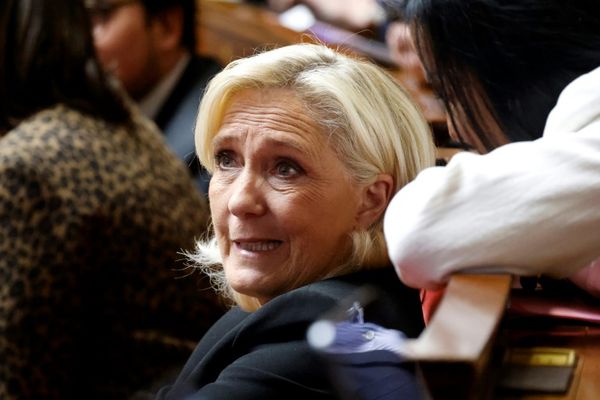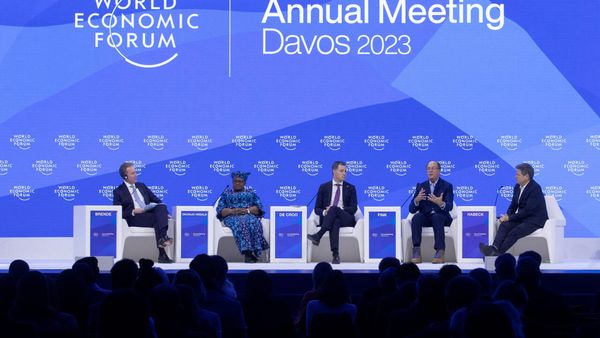
Davos (Switzerland) (AFP) - A rich Briton is among a group of millionaires in Davos pushing for governments to tax those like him more in order to bridge a wealth gap he warns is fragmenting the world.
In an interview with AFP on the sidelines of the World Economic Forum, Phil White said he was alarmed at how the rich got even richer while average people suffered during the Covid pandemic and as food and energy prices have skyrocketed.
"I am very happy to pay more taxes, I want my government to tax me and tax people like me," White said.
White is among more than 200 "patriotic millionaires" from 13 countries sending the same message to the world's political and global elite in the Swiss Alpine village of Davos for their annual meeting.
"We should be reducing levels of wealth," said White.
"And government should be imposing wealth taxes to reduce inequalities."
Among the millionaires in Davos sending an open letter Wednesday to the World Economic Forum calling for more taxes on the wealthy are "people who inherited, people who worked, entrepreneurs, traders, a whole mix of backgrounds," he said.
An engineer, White said he did not inherit wealth but worked hard and became "nicely off" when he and his partners sold their consulting company to private equity holders.
His group includes people like the US actor Mark Ruffalo, who played the role of Hulk in the Marvel films, and an heir to the Disney empire, Abigail Disney.
They are doing their part to promote the World Economic Forum theme: "Unity in a fragmented world."
White added: "We see this fragmented world but it is wealth that is fragmenting the world."
The millionaires' message was bolstered by the NGO Oxfam, which said inequalities had worsened dramatically in the last ten years.
Since 2020 alone, billionaire wealth has surged by $2.7 billion a day even as inflation outpaced the wages of at least 1.7 billion workers worldwide, Oxfam said in a report at the WEF opening on Monday.
Food and energy companies, it noted, had more than doubled their profits last year.
Oxfam called for taxes at rates that progressively redistribute wealth and reduce extreme inequality.
Phil White said increased taxation could begin with one or two percent each year on fortunes worth four or five million.
Taxes beats philanthropy
"It's not an enormous amount of money.Over time it would start to erode that extreme wealth and hopefully bring back society together," he said.
"Extreme wealth generates a number of problems.There are social and democratic issues associated with extreme wealth and divisions in society."
He preferred increased taxes over philanthropy at a time when billionaires like Mark Zuckerberg, Warren Buffett and Bill Gates make headlines pledging vast sums to good causes.
"We see philanthropy as being certainly a step in the right direction but it is really not the answer," White said.
"If I give money to help homeless people or something, that solves the problem for a week, but it doesn't really solve the root of the problem," he said.
"Hopefully those millionaires and billionaires that do engage in philanthropy will support a call for more taxation and for government to take the lead by using that money wisely and invest it in the social fabric," he said.
"We need to be very clear that philanthropy can sometimes be people hiding behind what looks good to the public," he added.










